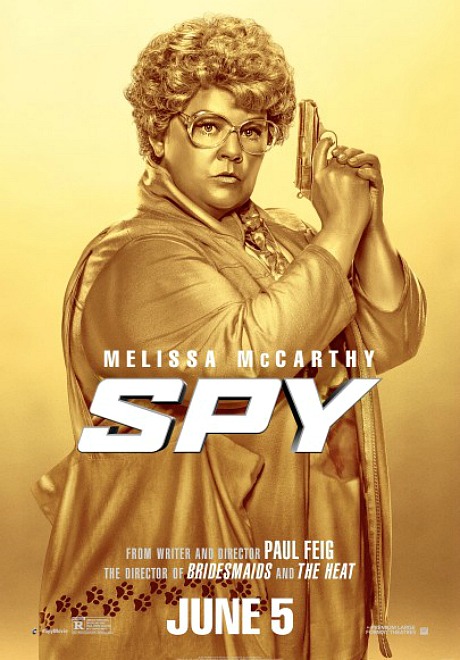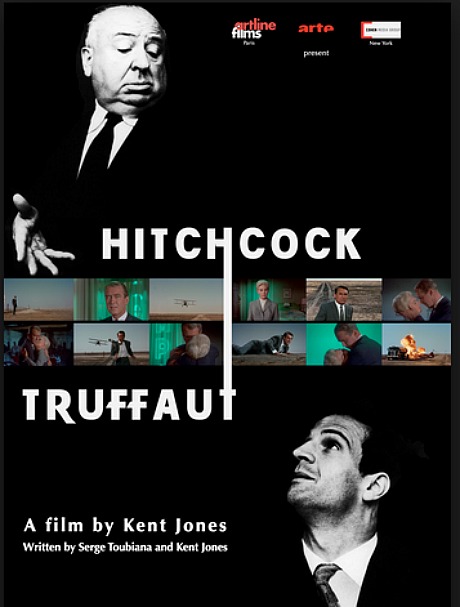Guaranteed Best Actor Nom for Hardy’s Kray Twins — The Anti-Redmayne X 2
If Eddie Redmayne‘s Danish Girl performance as the transgender Lili Elbe is locked for a Best Actor nom, the Academy has to turn the other cheek and give another Best Actor nom to Tom Hardy for his dual performance as London mobsters Ron and Reg Kray in Brian Helgeland‘s Legend. Pic costars Colin Morgan, Christopher Eccleston, Taron Egerton and David Thewlis. The Krays ruled London during the ’50s and ’60s (armed robberies, arson, assaults and the murders of Jack “The Hat” McVitie and George Cornell). On top of which Ronnie was openly bisexual and probably killed his wife of eight weeks, Frances Shea (Emily Browning), in a jealous rage. The brothers were sentenced to life terms in 1969 for two murders.
Brooklyn Bagel Pit Stop
Last night’s LAX-to-JFK flight on Virgin America took off on time and was “comfortable” for the most part, but I was miserable for lack of sleep. The lack of blankets didn’t help. Popped a couple of Advils but unable to really sink to the bottom of the pond. In a certain sense it was agonizing. Early morning New York weather is a bit on the brisk side, almost (but not quite) chilly by L.A. standards. My Airbnb place is only a couple of blocks from the old Montrose-and-Bushwick apartment. The free wifi at the nearby Bread Brothers cafe (Bushwick and Messerole) isn’t lightning fast but why complain? I’m here, I’m good, etc.


What Can You Do To Help Stop Eddie Redmayne Juggernaut?
Far From The Madding Crowd costar Matthias Schoenarts has spoken to Hitfix‘s Gregory Ellwood about Tom Hooper‘s brazenly, unregenerately baity The Danish Girl and particularly Eddie Redmayne‘s performance as Lili Elbe, the first man-to-woman transgender pioneer. “We finished it like a week ago [and] I had a blast,” Schoenaerts said. “Working with Hooper is an experience. Extremely sharp, committed, intelligent and has a sense of humor. And then you have Eddie Redmayne, who I’m sure [is] gonna get a second Oscar nom. It’s impossible. What I’ve seen him do. It’s probably [his] second Oscar, period. Not even just a nod, period.”
Feeney Tome Kicks Off Welles Centennial Tributes, Fanfare
The failure of Royal Road Entertainment’s Filip Jan Rymsza and director Peter Bogdanovich to deliver a completed, full-length version of Orson Welles‘ The Other Side of the Wind in time for the 100th anniversary of Welles’ birth on May 6, 1915 is an unfortunate embarassment. At least F.X. Feeney‘s long-awaited study of the genius filmmaker, “Orson Welles: Power, Heart, and Soul,” has been written and published on time and readable as we speak, and selling for a mere $15. F.X. only sent me a copy last night so I’ve yet to get into it, but Welles biographer Joseph McBride has written that “among the many virtues of Feeney’s book is that it conveys, as no book ever has before, what it must have felt like to be Orson Welles…he manages to give us that sense through his deep empathy, understanding, and close yet still clear-eyed identification.” Here’s F.X. reading from a portion:
A reading of "Orson Welles: Power, Heart and Soul" by author F.X. Feeney from The Critical Press on Vimeo.
Misheard, Redefined
According to JoniMitchell.com, the first verse of “Refuge of the Roads” ends as follows: “‘Heart and humor and humility,’ he said, ‘will lighten up your heavy load’ / I left him then for the refuge of the roads.” All this time I thought the line went “hard of humor and humility,” as in “hard of hearing.” Perfect line! But all along it was mine and not hers. Ah, well. And why did she use “roads”? The road will always be a singular realm…a dream, an adventure, a thing unto itself. The plural is just a lot of red and blue lines on an old Texaco map.

What Was The Last Woody That Was Shot in 2.39?
Can’t write, can’t get it up, flabby, misanthropic, drinks too much, despairing…and then it all changes in a blink of an eyelash. I just realized…just now!…that Woody Allen‘s Irrational Man is (a) definitely one of his darker pieces and (b) is going to be at least pretty good. You can sense that. It’ll screen in Cannes less than three weeks from now. It opens stateside on July 17.
That Awful Rural ’60s Substitute Teacher Cut
I’m sorry but I don’t find either of these low-rent come-ons the least bit amusing, particularly the second one. Nothing, flatline…a few smirks at best. Aimed at the female side of the same level of viewers who will like Ted 2?


More Cannes Must-See Docs
In addition to Kent Jones‘ Hitchcock/Truffaut (88 minutes), the following docs will also be shown at the 2015 Cannes Film Festival: (1) Depardieu grandeur nature, dir: Richard Melloul (60 minutes); (2) Gabriel Clarke and John McKenna‘s Steve McQueen: The Man & Le Mans (112 minutes); (3) Nancy Buirski‘s By Sidney Lumet (PBS American Masters, 103 minutes); (4) Stig Björkman‘s Ingrid Bergman, in Her Own Words (114 minutes); (5) Orson Welles, Autopsie d’une légende, dir: Elisabeth Kapnist (56 minutes); (6) This Is Orson Welles, dirs: Clara and Julia Kuperberg (53 minutes); and (7) The Golden Palm’s Legend, dir: Alexis Veller (70 minutes).
Birth of Hitchcock Legend
This morning I wrote Film Society of Lincoln Center programming director Kent Jones about his new feature-length documentary Hitchcock/Truffaut, which will screen during the forthcoming 2015 Cannes Film Festival. Jones directed and co-wrote with Cinemathèque Française director Serge Toubiana. I’m a huge fan of A Letter to Elia, a 2010 doc that Jones co-directed with Martin Scorsese, and all my filmgoing life I’ve worshipped Francois Truffaut‘s landmark q & a book “Hitchcock/Truffaut,” so I’m pumped for the newbie. I wanted to do a brief phoner but Jones has just landed in Paris to apply final tweaks so maybe we’ll talk tomorrow. Or not.

Boilerplate: “The film will journey through the extensive series of conversations between Hitchcock and Truffaut, illustrating their love for filmmaking and demonstrating their impact on modern world cinema. Legendary scenes from Hitchcock’s films, intercut with comment and opinion from contemporary filmmakers, will reinforce his iconic stature as one of the most influential directors of our time.”
Hitchcock/Truffaut, an American-French co-production produced by Cohen Media Group, Artline Films and Arte, will presumably be released later this year.”
Sex, Wheels, Potency
Posted four years ago: “It was the early ’90s, and I was tooling along Santa Monica Blvd. on a nice, sunny afternoon in my relatively new but not quite super-hot Nissan 240 SX. But I felt the car looked and felt pretty damn good, and I was in a pretty good mood. Then I saw a ’60s muscle car of some kind (a yellow ’65 Mustang convertible?) with whitewall tires pull alongside me. It had a 4 SALE sign in the rear window. A very pretty…okay, hot girl was at the wheel, and her passenger window was rolled down.
“Illness Always Wins”
Weight gain or loss is almost always a persuasive thing. A fake nose or chin or Alaskan husky eye contacts (a la Johnny Depp in Black Mass) definitely earns points. But I’m not sure how much of a help it is for a dude to go transgender so “not so fast, Eddie Redmayne!”

